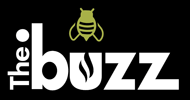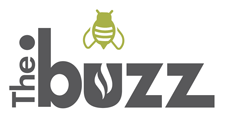Mike Cohen on New TLDs Creating Chaos / Confusion (…and Buzz!)
December 12, 2012Mashable’s 12 Buzzwords You’ll Hear in 2013
January 10, 2013We discovered this article on netnames.com and thought it was worth sharing:
Travelling backwards on a train is disconcerting. Even though I’m not driving the train I keep feeling that I should be turning round to see where I am going. Somehow, this makes the tedium of the journey even more unbearable despite some good company and the close proximity of an alcohol filled buffet car.
While I’m staring at the French countryside, which is becoming increasingly hazy as the sun falls I start thinking about the peculiarities of domain names, an industry in which I landed unexpectedly 4 years ago. A simple industry, needlessly spoiled by complexity, over regulation and decentralisation. A profitable industry, profitable for the registries that are authorised to issue names (for a fee), profitable for the registrars that register these names on behalf of corporations and individuals alike, hugely profitable for those with a bit of money and a bit of imagination that buy domain names speculatively in the hope that the value of it will increase and that they can sell them at a profit and finally profitable a for fraudsters that buy brand targeted domains to dupe website visitors into thinking that they are selling legitimate products.
It’s a confusing industry too, confusing for the majority of companies that have to pay money to secure multiple online versions of something they usually already own – their trademark. Because you can’t just expect to pay some money and walk away with all the domain names you need just like that … Oh no that would be too easy. With hundreds of different registries offering plenty of suffixes (the letters that appear after the dot) …seemingly each registry has set about to create a complex set of rules to differentiate themselves from any other registry. Some of these rules and requirements are just a bit odd, some of them are so bizarre that they have become part of Internet mythology. So on a long train journey with nothing to look at, since the sun has set, I thought I would list some and make some up and let you decide which you think are real and which are false. There will be a small prize for the first 20 that send the correct answers to [email protected]
1- If you are a foreign entity and want to register a domain in the Faroe Islands (.FO) you will have to wait for a month whilst they publish the request in the local paper and wait for any objections.
2 – Only syndicated radio stations can register domain names under .fm and they must include their frequency number in the domain name.
3 – Tuvalu (.tv) has a very small population (approx 12000) yet receives millions of dollars from domains registration by marketing their suffix as a domain linked to Television.
4 – Antarctica (.aq) domains are only available to government organisations who are signatories to the Antarctic Treaty and other registrants who have a physical presence in Antarctica. Due to the special nature of the Antarctic environment, the registrar will consider a “physical presence” to include “Unattended installations owned or operated by the registrant” and “Short term visits to the ice by the registrant or its employees”. A letter signed by the officer in charge of the base or expedition will be required to support your application.
5 – The Moon (.mo proposed). A recent application (received from Virgin Galactic, Sir Richard Branson’s space tourism company) to host a registry providing domain names for companies who can substantiate plans for a physical presence on the moon in future years, was only thrown out at the eleventh hour because a member of the Macau government objected after reading an article about it in the local paper.
6 – Djibouti (.dj) which markets it’s domain suffix as ‘handy for professional disc jockeys’ refused to issue a domain name to Howard Stern, the popular US disc jockey because the recently re-elected president Ismael Omar found him ‘morally and physically repugnant’
7 – When purchasing a Bahrain .BH domain, the registrant is compelled to also purchase web-hosting from the Registry even though they may never use it.
8 – If you want to register a domain to a local office in Ghana (.gh) you can expect a visit from Internet Hall of Famer Randy Bush who will personally drive to your registered address to check that your office actually exists.
9 – When registering domains in the Faroe Islands (.FO) proposed domain names are screened to ensure they carry no anti-brand or derogatory sentiment since FO is often an abbreviation for a rude expletive.
10 – Laos markets its suffix (.LA) as the unofficial Domain extension for Los Angeles and Latvia (.LV) does the same for Las Vegas
While the above competition is only meant to be a bit of fun, it is worth noting that the domain name registration eligibility and requirements for the hundreds of domain name suffixes are complex and will become increasingly more complex when the new gTLD applications start to come online.
Losing your primary domain name because of a failure to understand a registry’s specific registration requirements at renewal time can cost a lot of money, time and lost revenue. Failing to register a crucial domain name in a new territory can achieve the same result and registering too many domain names for defensive purposes will cost a lot of money unnecessarily. For corporations, it is crucial to build a domain name strategy that is right for your business and ensure that you hold the right portfolio of domains to prevent revenue loss or lost traffic.

